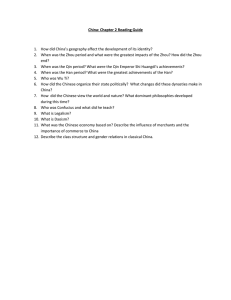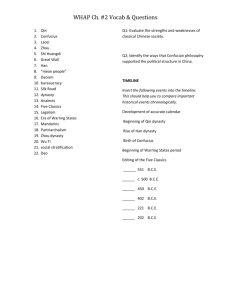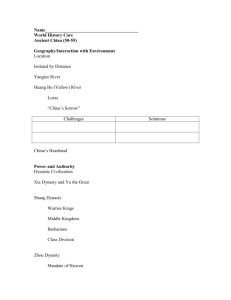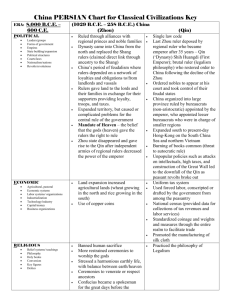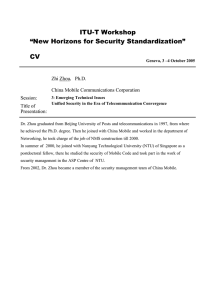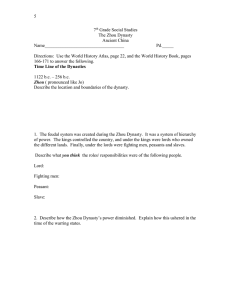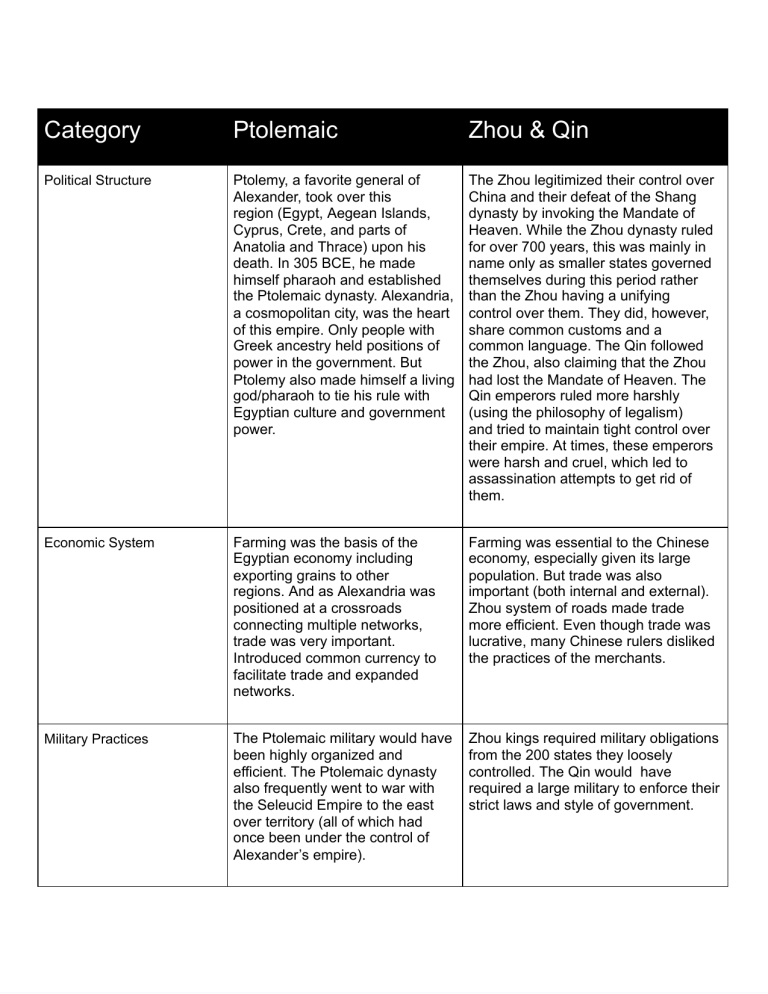
Category Ptolemaic Zhou & Qin Political Structure Ptolemy, a favorite general of Alexander, took over this region (Egypt, Aegean Islands, Cyprus, Crete, and parts of Anatolia and Thrace) upon his death. In 305 BCE, he made himself pharaoh and established the Ptolemaic dynasty. Alexandria, a cosmopolitan city, was the heart of this empire. Only people with Greek ancestry held positions of power in the government. But Ptolemy also made himself a living god/pharaoh to tie his rule with Egyptian culture and government power. The Zhou legitimized their control over China and their defeat of the Shang dynasty by invoking the Mandate of Heaven. While the Zhou dynasty ruled for over 700 years, this was mainly in name only as smaller states governed themselves during this period rather than the Zhou having a unifying control over them. They did, however, share common customs and a common language. The Qin followed the Zhou, also claiming that the Zhou had lost the Mandate of Heaven. The Qin emperors ruled more harshly (using the philosophy of legalism) and tried to maintain tight control over their empire. At times, these emperors were harsh and cruel, which led to assassination attempts to get rid of them. Economic System Farming was the basis of the Egyptian economy including exporting grains to other regions. And as Alexandria was positioned at a crossroads connecting multiple networks, trade was very important. Introduced common currency to facilitate trade and expanded networks. Farming was essential to the Chinese economy, especially given its large population. But trade was also important (both internal and external). Zhou system of roads made trade more efficient. Even though trade was lucrative, many Chinese rulers disliked the practices of the merchants. Military Practices The Ptolemaic military would have been highly organized and efficient. The Ptolemaic dynasty also frequently went to war with the Seleucid Empire to the east over territory (all of which had once been under the control of Alexander’s empire). Zhou kings required military obligations from the 200 states they loosely controlled. The Qin would have required a large military to enforce their strict laws and style of government. Category Ptolemaic Zhou & Qin Social Hierarchy The Greeks held higher positions in both government and society. And unlike Alexander’s policy of intermarrying with conquered peoples, the Greeks avoided intermarriage with Egyptians. This created two separate (unequal) levels of society in Ptolemaic Egypt. Women were active in religious festivals, which required some education (reading and writing of religious texts). Aristocratic women acted as patrons of the arts and sciences but all of this was for the wealthy rather than for all women. And some aristocratic or royal women had great power, as seen in the reign of Cleopatra VII. Chinese society was highly regulated based on Confucian practices and filial piety. Confucian philosophy required that everyone know their place and role in the social order and to respect those that were higher than them in that order. Under the philosophy of legalism, the ruler was the person with absolute power and all others were made to follow strict laws. Main Weaknesses Repeated wars with the Seleucid empire along with higher taxes levied on the people caused civil unrest in Ptolemaic Egypt. This led to revolts against Greek rule. A fight about grain exports (tribute) to Rome between Cleopatra and her co-pharaoh brother led to Rome taking over Egypt in order to make sure grain exports from Egypt remained at a steady supply. The Zhou dynasty was never truly a united empire. There were loose ties of kinship at the start, but these began to diminish and so did the Zhou control of China. Toward the end of the Zhou, regional or local kings began to desire more power rather than support the king. The decline of the Qin is more difficult to figure out. Historians of the periods that follow the Qin put the blame on a decline in morality and poor leadership. Western historians focus instead on a series of peasant revolts that left the emperor and his dynasty weak.
